Lock Picking – the reality

I am an avid reader of Q & A websites. I see lots of questions relating to lock picking and how easy it might be for burglars to pick certain locks. I can say right here, lock picking is not a skill your average burglar possesses. Honestly, I’ve been doing this job for close to 15 years now, and I’m certainly not great at it. Why? Because there are much easier ways to bypass most locks.
Lock picking is a major hobby in some countries and they even have speed picking competitions. They have nice new locks that are well oiled, set up at a comfortable height and they have spent hours every day picking the same locks over and over and over again. What they don’t have is the real world problems of trying to pick locks that are so low, you have to kneel on a wet floor in a howling gale near the sea and the lock is not only rusted, but salt encrusted as well. Strangely, that never happens to the TV hero either who, despite being by-the-book, can suddenly pick any lock in seconds using nothing but a tooth pick or hair pin. Hmmmm.
I was called out to a job in Sheringham the other evening. It was a latch type lock so my first attack was to try and slip the lock. While it would be against common sense to explain how to perform entry methods, I can tell you that in the right circumstances, slipping is a super fast entry method that can take seconds. On this occasion, the door was too tight. This particular door was also devoid of a letter box, meaning I (and potential burglars) could not use a special tool that goes through the letterbox and opens latches easily, again in seconds under the best conditions. At this point, I considered picking the lock. I have picked locks like this in under 20 seconds but I knew this was not going to be on this night. The door being a very tight fit meant the actual latch was pushing hard against the keep in the door frame. Lock picking requires two tools; the pick and a tension tool, which is barely more than an ‘L’ shaped piece of thin metal. It has to be thin, because if it is too thick, it stops the pick doing its’ job. I could pick that lock 50 times and the tension tool would just not be strong enough to rotate the lock.
At this point, as a locksmith, you have to make a decision. Do you persevere possibly for hours, charging the customer a small fortune, or do you break and replace the lock. For this lock, it was a no-brainer. Three of them are equal to my hourly rate, so I went and got my drill. The drill was so fast, neighbours didn’t even bother to come and see what was going on. Had I been a burglar, I would have been in without anyone worrying about the noise made. My customer was happy because after two hours waiting for a locksmith who didn’t show, and then having to wait for me to finish my previous job, getting in quickly and getting a new lock was better than getting in later and being charged more money with no visible gain. I even changed a second lock while I was there.
All the above has a point. Burglars don’t often pick locks. Even easy to pick locks can more effort than they are worth. Burglars snap, slip, drill, smash and use plenty of other methods. But picking is rarely one of the methods they employ; this is why it is important to fit locks that carry the British Standard Kite mark, showing the lock has been tested to attacks that exceed EU regulations. BS3621 locks display the kite mark, showing burglars that they are not going to have an easy time entering your property, no matter what they try.

There is also a second point; please don’t expect your locksmith to have a magic pick that gets you in faster than the TV detective. Locks are designed to be difficult, the better locks get, the harder they are to bypass without damage. When your emergency locksmith reaches for the drill (hopefully they explained why), it’s not because he is unskilled at picking, but more because damage and replace is going to be the best option for you in terms of time and cost. If your lock looks like it will fail in the next twelve months anyway, a new lock now will save money in the near future.
If you have any questions about the above, please contact me through any method on the home page.
Thanks for reading.
A day in the life of your friendly neighbourhood locksmith

Just recently I had a call from a gentleman looking to start up as a locksmith in another county. He wasn’t going to be my competition, so I thought I’d take five minutes to answer his questions and give him some advice. Half an hour later, we were still talking and I had only scratched the surface. Being a locksmith in the UK is hard compared to other places.
From what I read of American locksmiths, their locks are pretty easy to pick but they are pretty standard, so locksmiths tend to re-key locks rather than replace the whole thing. That means they are used to dealing with the same locks day in, day out. Re-keying is where you take out the old pins, put new ones in, using a different configuration and cut keys to match. Across as much of Europe as I have been, the locks are usually euro cylinders, the type we see most commonly in UPVC doors. These are everywhere, and again, pretty easy to get through if you know what you are doing and have the correct tools.
But here is the UK, you never know what sort of lock you are going to find. Nightlatches (Yale locks), mortice (Chubb) locks in 2, 3, 5 or even 7 lever varieties, Rim locks mounted on to one side of the door with a long key, wooden doors, metal doors, composite doors, hollow doors, upvc doors and on and on and on. UPVC doors have in excess of 37 mechanism manufacturers, all whom produce multiple designs with multiple sizes of those designs. To be prepared for any situation, I would need to go to every job in an articulated lorry! If you ever think of going into this business, you must be prepared to learn a lot on the job. Even now, I am coming across things I have never seen before in over 13 years on the job.
So what is my day like? Unlike city locksmiths, being one of the few Norfolk locksmiths, my area is huge. Norfolk has quite a sparse population well spread out and with a notion that we are a ‘safe’ county. That means I can drive for up to an hour to reach my jobs. Admittedly, I do try to keep local, but right now, there is a massive shift in holiday let fire regs and I am racing across the North Norfolk coast fitting thumb turn locks for all those that need keyless escapes. That means from my base, I travel all the way to Hunstanton in one direction and as far as Happisburgh in the other. I will go further, but this is my main focus.
So, Monday means getting to the first job for 9. Mondays are always busy so this will be booked from last week. By the time I finish the first job, I’ve been interrupted by two more bookings and two or more advice calls. With something unexpected happening at the first job (customer not there because they decided to walk the dog and leave me waiting for half an hour, I am already late for the second job. But one of those calls I just received is from someone locked out with desperate need to get back in and pick up the CV they need for their job interview. They are also on a large divert from a direct route to my original second (now third job). With no time to put anything away tidily in my van (my wife never believes that), I hurry to the lock out. Five minutes away, I get the call that the lockout has found a neighbour with a key and they don’t need me. So now I am really late for the second job and have nothing to show for it. Luckily, when I get to the second job, it is really easy for me and I am away in fifteen minutes, catching up time, but not enough to keep my van tidy (honestly, wife!)
The third job is a long distance one, so there and back is nearly three hours. Unfortunately, I need to order parts, so apart from getting them secure, there is not much to do. That’s three (nearly four) visits and only two have resulted in me getting paid today (I don’t usually charge if I can’t do anything). I then come home. I have a backlog of paperwork to do, parts to order and a van tidy to ignore (tomorrow when the weather is better!) During this time, more calls come in and more appointments/queries need to be addressed via email. But Monday is my favourite day. I play football on a Monday night so it is the one time I can switch off. I have been known to go to jobs after playing 5 aside football, but now I ache too much. Any other night I am ready to go when the phone rings. This last week it was Friday and Sunday nights, but luckily on both, I was home by 11pm, so in bed ready for the next day. Tuesday is likely to be more easy jobs like measuring up for thumb turn locks, because I am a wuss with the football (maybe next day for the van tidy!). But the emergencies come in anyway and I can only hope for the long drives in between!
99% of people understand that locksmiths are different to most other traders. We don’t often get big jobs like builders. Most of our time is in between jobs. So when we turn up and get you inside your home in five minutes, the money you pay is for the time to get to you, to return home, the fuel, wear and tear on the van, the time advertising, doing paperwork and eventually tidying the van!
Holiday let owners – are you aware of holiday let and keyless exit point regulations?
In light of the new self assessment fire regulations for owners of holiday lets, here are some things I have noticed people getting wrong:
Firstly, your front door and back door may not be the only fire escapes. If you are in a room with French doors and the fire is the other side of the interior doors, then the French doors are your exit point. Every final exit door is a fire exit and therefore every final exit door must me converted to keyless escape.
Secondly, if you have a porch, the inner door must either be converted as well or left unlockable by the customers. This can be as simple as taking away that key. Alternatively, convert the inner door and remove the key for the outer porch. Either way, the entire route must be keyless escape to meet the keyless exit point regulations.
Finally, this conversion is a serious impact on security. There are tools available that can come in through the letterbox and rotate the thumb turn/push the lever. As these are your holiday lets, I doubt you get much worthwhile mail, so either invest in a letterbox guard, letter collecting basket or seal off the letter box and put a posting box on the wall outside.
So what does the conversion to keyless exit point regulations consist of?
Well, if you have a door with a lift handle mechanism then it simply means changing your double key cylinder for a key and turn cylinder
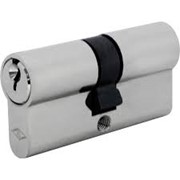
Double key cylinder
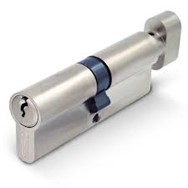
Key & turn cylinder
Prices start from £55, although I see no reason to go for high spec when you are making life easy for the burglar under these new regulations.
If you have a wooden door, you are turning this 
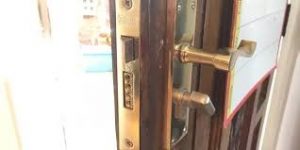 into this
into this
On wooden doors, you also have the option to install a kite marked nightlatch /Yale type lock
If you need me to come and do a keyless escape conversion for you, please book a free assessment/measure up where I will give you a final no obligation quote and book you for fitting at the next convenient date. Most work can be carried out during changeover days.
Landlord lock law change:
I have just been reading through the Home Office Document: ‘A guide to making your small paying-guest-accommodation safe from fire.’ A guide to compliance with fire safety law for those responsible for safety in small paying-guest-accommodation’
You can find the document here
Note this says fire safety law and therefore is the legal requirement of all landlords, certainly for those with holiday lets. I would argue long term tenants are also paying guests as they have no right to remain when a landlord decides they want their property back for any reason.
Speaking to a letting agency recently, I have also discovered that it will be expected of all landlords to read the document and comply with all points mentioned. You won’t always get a risk assessor to check things for you. You, as the landlord are entirely responsible should a fire break out. It is quite heavy reading and most of it is obvious, but it is my job to point out relevant issues to my own line of work.
In section 6, there is this statement:
‘Exit doors, such as the front or back door, should always be easy to unlock and must not need a key to unlock them from the inside. A simple latch or thumb turn is usually good enough. However, you may need to consider whether all guests are able to open these doors. A simple single action turn handle or lever will often be more appropriate.’
This means you must have a lock with a thumb turn on the inside. Something like this:
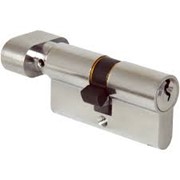
On all upvc type doors, this is simply a matter of changing the cylinder. On doors with mortice (often called ‘Chubb’ type) locks, you will need to change the lock, handles and purchase a cylinder. And while thumb turns are great for fire escapes, they do pose a security risk as it is possible with certain tools to go in through the letterbox and rotate the thumb turn to gain access. Therefore any locks with thumb turns on a door with a letter plate, should also purchase a letter plate guard to alleviate this problem.
The point is repeated on the checklist included in the document: ‘Are frequent checks carried out to ensure exit routes are kept clear and fire exits remain easily openable?’
That is your prompt to make sure no one can lock a door, remove the key and then be unable to get out while panicking in a fire.
October the 1st is the current date for this to become law over advice.
If you have your work done through AC Locksmiths Norfolk, you can expect to pay £55 for a kite marked thumb turn euro cylinder. These can be brass/gold, chrome, polished chrome, dual finish, black or white. An average of £50 to replace your mortice lock with a mortice euro lock case. Handles start at £25 but average at £45. More ornate handles such as wrought iron up to £200. In all cases, a labour fee of £75 is payable. (All prices correct at time of writing, but please get binding quote at measuring stage). In almost all instances, a measuring visit will be required. This is free to all properties within a half hour drive of Holt, Norfolk.
Should you have any questions regarding the above information, please do not hesitate to contact me; 07846643176
Thanks for reading.
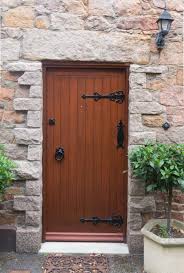
New laws for holiday lets; Very soon, all holiday let properties are going to be required by law to be keyless exit in case of emergencies. For properties with UPVC or similar doors where the handle needs to be pushed up before locking, the lock changes are straight forward and the existing cylinder just needs to be changed for one that has a thumb turn on the inside rather than a key.
But if you have a wooden door with a mortice (Chubb type) lock, then you will need a complete conversion kit consisting of replacement lock case, thumb turn cylinder and Euro cylinder handles. Most of this is straight forward, but sourcing handles to match your existing ones can be a drain.
If you do not get this work done and your tenants have an emergency, there will be no cover from your insurance should the worst happen due to them not being able to escape.
Here at AC Locksmiths Norfolk, we are happy to work around your changeover days and with your management company to get the locks changed seamlessly without hassle for you or your customers.
Should you require any more information about the new laws for holiday lets – or anything else, please contact me for an informal chat.
It is well known that business properties, especially where the public has access, should have secure fire exit doors, which means that all locked doors should be able to be opened from the inside without a key.
But many people renting out properties for holidays do not realise that these fire exits should have easy escape capabilities. The logic behind this is that if the lock is key operated on the inside, the customers may well lock the door, put the key somewhere safe, and then should the worst happen and a fire break out, in their panic and being away from home, they could well forget where they have put the key and be caught in a tragic accident.
So if your wooden door has a nightlatch (often called a ‘Yale’ lock), and that lock has a British Standard Kite mark, you are fine.
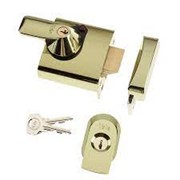
If your wooden door has a mortice (often called a ‘Chubb’ lock), with key operation on both sides, there is a conversion that can be done to use a Euro Cylinder that has a thumb turn on the inside. This means changing the lock and handles but can use the existing space with minimal visible change.
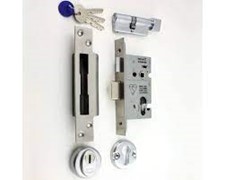
If your door is UPVC or has any mechanism where the handles must be lifted before locking, it is a simple matter of swapping the existing Euro Cylinder for one with a thumb turn on the inside.
This is a key both sides Euro Cylinder: 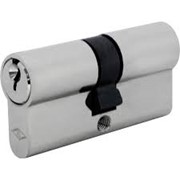
And this is a standard thumb turn Euro Cylinder: 
There is a slight worry with installing these fire escape systems, though and that is I have a tool that can go in through letter boxes and turn the thumb turn allowing me access to the property. We have two solutions. Firstly, certain thumb turns on the very best cylinders are designed to be difficult for tools to turn. They might require a push while turning or just plain difficult for the tool to purchase.
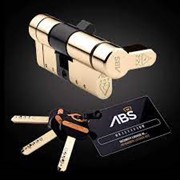
Alternatively, you can buy specially designed sloped guards for your letterbox (although even these can be bypassed with ever more clever locksmith tools).
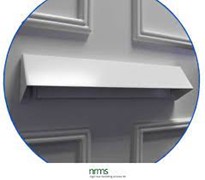
Or better yet a letter catching cage on the back of your door will stop all tools that I know of at time of writing.
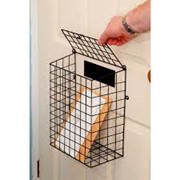
If you own or run holiday lets, you might find your public liability insurance does not pay out if you have not taken the correct measures to ensure the safety of your guests.
I am noticing a lot of village halls are also suddenly finding out from fire inspections that they are not up to scratch. Please check the regulations specific to you if you run any property that is not a private home.
Click here for Government guidance on fire doors/fire safety
Should you have any questions regarding the above information, please do not hesitate to contact me.
Thanks for reading.
Common key & lock mistakes – And How To Avoid Them

It has been a while since I have produced a blog helping you to avoid needing to call out people like me. So here is a short list of common, avoidable mistakes people make that might just help you not make those same mistakes, hopefully saving you time and money.
Safe Keys
Putting override keys inside your battery operated safe: Safes are great, but if you have a key operated safe, the safe is only as good as the place you hide the key. People are quite obvious in hiding places, so digital safes are a lot better then simple key turn safes. The only problem is that digital safes have master key overrides and the safest place for these keys is in the safe itself. But if you only use your safe rarely there is a good chance you will forget about it, It gets placed in a built in cupboard, covered in clothes and out of sight, out of mind. The batteries start to die and because it is covered in clothes, you don’t hear the warning beep and pretty soon, you have a keypad that you cannot use. Thankfully, you have override keys…. But they are inside the safe. At this point, you can call a domestic locksmith who will gain access by destroying your safe and you will have to pay him for the privilege. You then have to buy a new safe. Potentially £100s because you forgot to change the batteries and left the override keys inside the safe. You can try a safe specialist to come and pick the lock, but the cost might still be £100s because safe specialists are rare (the courses and equipment are expensive) and they don’t get many calls compared to standard locksmiths.
How to avoid disaster? Firstly, take those override keys and trust a family member/good friend to look after them for you. If their house gets broken into and a burglar finds your safe keys, they have no idea what safe they open or where it is. But if they find those keys in your house, they can get into your safe. So, get those keys away from your property. Surprisingly, now your keys are not easily accessible in your safe, you will be more likely to check your batteries! But don’t rely on that. Check how long your safe manufacturer says batteries should last and halve it. Write on the calendar when to change the batteries. Use the old batteries for something else, but keep new batteries in your safe. I love Autumn and Spring because we change our clocks and this gives us a great time to do other things like regular battery changes. Have a list of other maintenance things to do like pre-winter gutter cleaning, etc, and put safe battery changes on that list. This will ensure that if you do have to call someone to open your safe, it will be because something has gone wrong rather than having to explain an expensive memory failure.
Car keys on holiday
I wish I had a sum of money for every time someone called me to say they lost their keys on the beach and the spare car key is 400 miles away on the other side of the country… Oh wait, I do! When you drive somewhere on holiday, take your spare key. When you get to your hotel/air B&B/caravan, etc leave your key somewhere safe at your destination. If you lose your car key, it will be a lot cheaper to get a bus/cab back to your holiday base than it will to call an auto locksmith to come and make a new key on the spot for you. A lot quicker too. Even when you go out on a normal day, if you have someone with you, get them to carry the spare key. If you bring the spare out and leave it in the glove box, you are making life difficult for everyone except car thieves.
Letter boxes
Sticking with cars, most cars are stolen from driveways or outside homes using the keys which have been lifted – either because the front door is left unlocked, or the thief has fished the keys through the letter box. Tools for opening locked doors via the letterbox are getting cheaper, easier to use, and ever more sophisticated. Even if you have an angled guard, there is a tool that goes around it. You might think this is a step back to your Grandma’s house, but a letter basket with closing lid, is a great way to foil the letterbox thief. Better still, seal up the letterbox, and have an external box. If you have room, get one that is big enough for parcels, We get so much delivered these days, a lockable parcel box is a great idea. At the same time, door cams record anyone approaching your door and will have images sent to your phone before they can vandalize it. But I digress..
Copy keys
If you are renting out a holiday home or have multiple carers, etc, get a locksmith to install a new lock, with all new, branded additional keys tried and tested before the lock goes in. Almost every time I get called back to job where the lock has failed, the customer shows me a key that has been copied elsewhere on some poor-quality blank. If you get keys copied and they foul up the lock, that is invalidating any guarantee the locksmith gives you, but if you are using additional keys supplied with the lock at time of installation, you are completely covered. But, if you must get copies made, make sure the original keys are the ones that get used most. I.E. let the guests use them. Yes, they might lose them (less likely if you request a deposit), but if they have poor quality keys and the lock fails and they are locked out waiting for a locksmith who destroys the lock getting in, the cost just multiplies. If you need multiple carers, please get a keysafe. It is better than having to collect keys later and ensures better keys are used.
5 lever locks
Know your terminology; there is a difference between a five lever mortice lock and a multipoint locking system. If you have a wooden door the mortice lock, (often called a ‘Chubb’ lock) is the one that should be 5 levers. If you look at the front plate, It will tell you that it is either 2, 3 5 levers and preferably will display a British Standard kite mark that tells you it has been tested against picking, drilling, sawing and most other forms of attack. If you have a door where you lift the handle and various hooks/bolts/mushrooms, etc. move, this is not a five lever lock. This is a multi-point locking system and your insurance is happy with that, which is bizarre because these systems are only as good as the locking barrel you put your key into and insurance companies are yet to wake up to how easy these can be to bypass. Again, digressing, but please talk to your local locksmith about kite-marked barrels. And if your architect/builder/designer tries to tell you these new multi-point doors without handles are a good idea, ignore them. When there is no handle, all the force of opening the door goes through the key. The leverage ratio is tiny compared doors with nice big handles, and at some point, you will snap your key in your lock.
Complacency
My last one for this blog; Just the other day, I fixed a basic lock on the top half of a stable door. It was not insurance compliant. When I challenged the customer regarding this and told him that his insurance company would not pay out if he were burgled, he replied with one I have heard often: ‘This is Norfolk. Although I know someone in the next village got burgled and lost a lot, it’s highly unlikely I will.’ So why pay for insurance at all? If you are paying for insurance, you owe it to yourself to make sure you are compliant. A second house this week is having three locks replaced after one has stopped working. I pointed out the three locks were all 3 lever and not insurance compliant, so the customer in this case, ordered new locks without delay. If you have an older house, don’t just assume the locks are up to spec. Most decent locksmiths do a free security check and, speaking for myself, when I do security checks I will tell you where advice is necessary and where advice is just personal recommendation.
This article about insurance required locks is quite good.
Should you have any questions regarding the above, please get in touch.
Thanks for reading
Smart Locks again
Is now the right time for a smart lock?
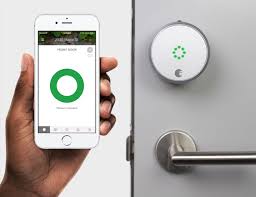
Smart speakers, smart cars, smart fridges, smart thermostats, smart light bulbs, the list goes on and on. In that list are a massive number of smart locks. You can find them all over the internet, from the very cheap to the ultra expensive, basic to very flashy.
But the big problem with almost all of them, is that they will compromise your security, or you will need a whole load of other stuff to make them work. If you have smart locks on a standard wooden door in the UK, the chances are it will be a latch lock. The problem here is that UK insurance companies don’t like latch locks because the latch can be ‘slipped,’ an attack method that can silently take seconds to get into your home with the correct, very cheap equipment. British Standard (BS3621) latches are allowed but the springs are much stronger on these making smart conversions a bad idea as there is a good chance of over-burdening the turning motor inside smart locks. There are solutions for wooden doors, but you should really expect to allow a further £200 minimum for the needed conversions, and it would be much better to consult your local locksmith to ensure the end result will meet your insurance company requirements.
If you have a door with a euro cylinder (the type where you normally lift the handles before locking/unlocking), then insurance requirements are not the issue. The issue is the whole lifting handle before your smart locks can do anything smart. For example, on a standard door, you will have to either not fully lock your door when you leave, (only possible if the outer handle is a dummy handle that does not retract the latch) or you lift handles, use your phone to do what the key would have done and leave. Then, when you come back, you use your phone to unlock, physically push the handles down to disengage the bolts, etc, and then use your phone again to open the latch and have the door swing open because that is what you wanted the smart locks for – to have the door open for you when you are carrying lots of stuff. So here, you gain nothing over a straight forward key. I do know of one company that does a complete smart lock/handle, but it is stupidly expensive, only works with the same brand locking system, and the two I have fitted both failed to set up properly.
So my advice is this. Think long and hard about smart locks. First and foremost, is it going to compromise your security? Secondly, is it actually going to make life easier? Is getting out and firing up your smart phone, searching for the app, searching for the right button within the app, turning it all back off again, etc, actually better than just pulling out your key and turning the lock? Thirdly, ask your local locksmith, and if your locksmith suggests an alternative, ask him/her to explain exactly how their solution meets the above requirements.
Thanks for reading
Previous Smart Lock blog here
Changing the locks on a brand new property
There seems to be a massive drive to build new homes lately. Almost everywhere you go, you are bound to be driving past a new build construction site. You might even be looking at a nice newly built home in your area, or even bought one. The beauty of a new home over an older one is that you can move in knowing you have nothing to do. The carpets are already fitted to your criteria, the sparkly kitchen gleams and there is no worry that some random neighbour has a spare key to your home, so why are we advising changing the locks on a brand new property?

Why change the locks?
Quite frankly, the developers will do the minimum possible to meet regulations, and currently in the UK the regulations just are not up to the same level as the burglars. New homes are all being built with multi-point locking mechanisms and while all the hooks, bolts and rollers look impressive and secure, the system is only as good as its’ weakest part, which is the locking cylinder. While standard locking Euro Cylinders are acceptable for insurance purposes, they are incredibly weak to a form of attack called ‘cylinder snapping’. Property developers will use these standard cylinders wherever possible.
Some of the more reputable developers will at least have the decency to install kite marked Euro cylinders in their doors, but beyond the kite mark, there are still three grades of security, which cover the three main forms of attack, those being snap, pick and drilling. So a cylinder with one star will be proof against picking but not the other two, and a cylinder with two stars will still be susceptible to attack by one of the three main methods. You can supplement the star rating by having anti-snap collars placed inside the handles, or anti-drill handles. You may even have these, but if you don’t know, then the burglar doesn’t know either and he is likely to have a go, fail and leave your door a mess before he leaves. Only a three star cylinder should be used if you want the burglar to go away before even trying.
With total honesty, there is a tool that can be purchased to bypass even some of the best three star cylinders, but it takes time use and is fiddly. Entry with this tool is trial and error, sometimes taking many minutes to get in the door, whereas a standard cylinder can be snapped in under 60 seconds with household tools and no sound. For the same reason a burglar will not take the time to remove your roof tiles and enter that way, he will not purchase a tool that takes him many times longer to get in than the cheap tools he can get from a DIY store.
Cylinder snapping is no longer about normal burglary any more; Intruders know that most people leave their car keys somewhere in the vicinity of the front door, be they left on a surface, hanging on a convenient hook, or just in a coat pocket. They can now look for the car they want to steal parked nicely on your front drive. As most of us are now two car families, at least one will sit on the drive, and if that car is your brand new Mercedes or BMW and you keep your keys close to an easily attacked door, your insurance might decide not to pay out because you didn’t take enough care. How many people tell their insurance the car is kept in the garage, knowing that actually the garage is full of the toot we don’t want in our actual houses? Breaking into a house and stealing the keys is now the easiest way to steal their car.
And while a barking dog is a deterrent to some degree, what protects your home when you are on holiday or even out walking that dog?
Most three star Euro cylinders are visibly different to standard cylinders. They shout at the burglar you are serious about home security and that attacking your home is going to be noisy and time consuming. Noise and time are the enemy of the burglar. If he knows breaking into your home is going to be noisy and take up precious time, he is going to move on. If you fit the proper cylinders, chances are you will be angry with the locksmith after years and years of never seeing any signs of attack. You will never know how many intruders scouted your home and mentally noted to leave you alone. It’s not hard. I help my kids with their paper round, and the best locks stick out like a sore thumb. I know exactly how few there are and where they are. A potential intruder only has to deliver some bogus leaflets in any area to work out who is best avoided.
While on this subject, an emailed question asked if it worth putting extra strength glue in an externally beaded window so that if the burglar got the beading off the window would still be stuck in place. Beading removal was never a hugely popular method of attack. There was always too much potential to make noise and take a long time. Also, the risk of breaking glass and then cutting oneself is too high, even without extra glues. Cylinder snapping is quick, quiet and easy. So faced with a choice, you should always upgrade your cylinders.
If you have standard cylinders or even kite marked one star cylinders, you should upgrade now. If you don’t know what you have, a good locksmith in your area will come and assess your locks via a free security check. Unless a locksmith has provided your locks, I very much doubt they will be the best on the market. You cannot buy the best locks in the DIY shops. While you are ensuring you have the best locks, you should be sending a copy of this information to everyone you care about, because of the following reasons:
- Burglary is on the rise.
- Traditionally ‘safe’ areas are being burgled more often.
- Only a tiny fraction of burglaries get investigated by police.
- You are now at risk from car thieves as well.
- Burglars pass on information to each other, so if you are burgled once, you stand an increased chance of being hit again.
- Every person I speak to who has experience a burglary, reports feeling of personal violation, sleepless nights and detachment from their home.
If you have any questions regarding the above information or any of the other blogs I have written, please get in touch via any of the methods on my contacts page.
Thanks for reading.
New build Holt, New build Fakenham, New build Aylsham, New build Cromer,
New build North Walsham, New Build Norfolk, Locks Holt, Locks Fakenham,
Locks Aylsham, Locks Cromer, Locks North Walsham, Locks Norfolk
Smart Locks – Again! I am having a growing number of people asking me for help with smart locks they are buying for themselves. Many of you are expecting simple installation (as advised by the manufacturers) only to find things a bit more complicated than you might expect. The same can be said for some smart doorbells and supposedly easy installation security equipment like smart CCTV and alarms.
Smart security is still a young technology. Smart locks can decrease your security level and even make your insurance void in many cases. A lot of smart locks are aimed at an American market and their lock requirements are not as stringent as ours.

Smart locks are not always more convenient than key operated locks either. With a key operated lock, you take your key out of your pocket as you approach your door, and you are in without thinking about it. With a smart lock, you might have to carry a tag (easier to break than a key) or you might have to get out your phone, wait ages for the phone to recognise your face/thumbprint/pin code, find the app, open the app and then find the unlock button within the app.
Smart doorbells/doorcams can take loads of footage and send you endless emails of people passing your property but not actually approaching your door, or better still the spider web spun overnight and blowing in the breeze, setting off the sensor. You have to weigh up the options of battery (not good if your door opens onto a busy street) versus mains power (might need long wires or an electrician to wire it in safely).
Your smart CCTV might not be able to tell the difference between a small dog and a human, in which case you are going to be poring through hours of watching what Fido was doing while you were out all day while Fido himself is desperately waiting for you to take him walkies!
And smart alarms can be much better than you thought. Would you like your elderly Mum to just have an alarm for when she goes out to the shop, or would you like a system where if she takes a fall, she can press a button on a neck loop and the alarm system not only calls you, but lets you speak two-way to asses the potential emergency. Do you want your alarm system to incorporate a smoke detector and CO2 detector. Which virtual assistant device do you want it to be compatible with? Do you want it easy to take with you to a new property? Do you want it future proof or easy to do add-ons in order to keep the initial cost down?
There are so many things to think about when buying smart security products and they are rarely as easy to install as their blurb would have you believe. Any decent locksmith/security installer will provide you with free advice and quotations. You should always consult a professional before purchase. Not the person in the shop, but a person who installs and knows the pitfalls.
If you have any questions regarding the above information, please do not hesitate to contact me via email or phone 07846643176
Thanks for reading!
Previous Smart Lock posts: When is a smart lock not so smart
Smart Locks – what you need to know



















